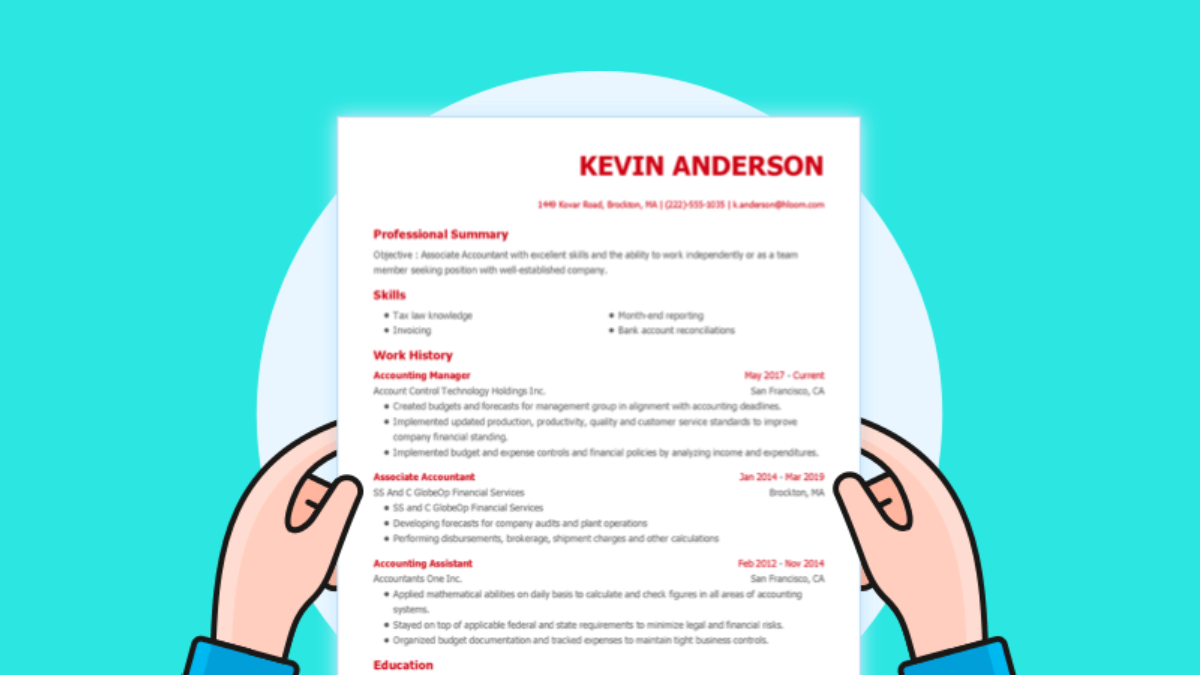
Personal data in the CV: This information is important
A CV in tabular form usually begins with the heading “Personal data”.
Personal data is an indispensable part of the CV. After all, the employer needs to know who they are dealing with and how to contact you. Information on the full name, your own address or contact options is therefore mandatory. Additional information that goes beyond this remains voluntary. Nevertheless, in many cases it is advantageous if you reveal a little more about yourself. However, there is also information that you should better do without these days.
Example of personal data in the CV
Name: John Mohamed
Date of birth: August 13, 1995 in Turkey
Address: Bahnhofstraße 42, 20095 Turkey
Nationality: Turkey
Phone: 01254/1234567
E-mail: maximilian.muster@provider.de
Personal data in the CV: You must provide this information
There is no way around some personal information about the applicant, because the application must be clearly assignable. That is why personal data usually comes first in a CV . The recruiter should be able to see immediately who is applying, what the candidate’s address is and how they can be reached. No CV is complete without this key information. However, there are a few things to consider.
Full name
State your first and last name and do not use abbreviations or short forms. If you have several first names, you can limit yourself to your first name – that is usually sufficient. It is possible to name academic degrees. However, whether or not there are any advantages to providing this information depends on the industry and the desired position.
Address
Enter your complete postal address. In the case of place names with a risk of confusion (Neustadt, Kirchdorf, Frankfurt, etc.), additional information should enable clear assignment. You only have to name the country if you live abroad or if you want to apply abroad.
Phone number
What is needed here are numbers under which you can most likely be reached personally during the day . What use is your landline number to HR if no one answers before 6 p.m.? If in doubt, your cell phone number will suffice.
Today, every applicant should be reachable by e-mail – even if the application is submitted by post. However, make sure that you use a reputable e-mail address: maximilian.muster@provider.de is good, maxibrudi97@fcbeispiel.de is not.

Personal data in the CV: You can provide this information
The General Equal Treatment Act (AGG) states that no applicant may be disadvantaged because of his appearance, his gender, his age, his nationality, his religion, his marital status or the number of his children. From a legal point of view, personal information of this kind is therefore not mandatory in the application and may not be requested by the employer. However, it is still common for applicants to provide some of this information voluntarily. Anyone who deviates from the usual application practice should have good reasons for doing so.
Date of birth and place of birth
The dates of birth are still a common and fixed part of the vast majority of applications. Because the age of the applicant naturally plays a major role in the employer’s considerations, despite all the laws – be it because of the age structure in the department or because of long-term plans. As a rule, you should only refrain from giving your date of birth if this is explicitly required in the job advertisement.
Nationality
The hiring of employees without German citizenship means additional bureaucracy for the employer – this applies in particular to non-EU foreigners. If you do not have German citizenship, you should therefore ensure clarity . With some first and last names, on the other hand, the impression can only arise that the applicant does not have German citizenship. In these cases, too, it is worth providing clear information and preventing misunderstandings. And from a formal point of view, the nationality is given as an adjective, i.e. “German”, “Polish” or “Turkish” and not “Germany”, “Poland” or “Turkey”.
Marital status and number of children
Whether you are married or have children says nothing about your professional qualifications. You are therefore no longer or less suitable for the desired position. In the past, HR managers are said to have dared to look into the crystal ball: single people were considered flexible, married people stable and young women without children were seen with one foot in the delivery room. However, these assumptions lack any reasonable basis and are largely meaningless today. Information on marital status and the number of children is still possible in the CV – but you can also do without it with a clear conscience .
Denomination, party affiliation, etc.
Denomination plays no role in most applications and does not have to be specified. However, it can be an advantage for jobs with church sponsors (e.g. many hospitals or daycare centers). The same applies to a suitable party affiliation and applying to certain foundations or a trade union. However, always bear in mind: If the HR manager does not share your world view, information of this kind can quickly become a disadvantage – despite all legal regulations .

Personal data in the CV: You should avoid this information
The CV should be kept as short and clear as possible – HR managers appreciate precise information. Filling it with irrelevant information will not make a good impression. Therefore, there is also information in the area of personal data that should not help your application.
Parents and siblings
It used to be normal for CVs to contain personal information about parents (and sometimes even siblings) and their occupations. The origin from “civilized” circumstances should underline the personal suitability. This view is now outdated, which is why such information is no longer in demand. On the contrary: They inflate the CV and also suggest that you are not informed about the current application requirements. You should therefore refrain from providing information about your parents or siblings in any case.
Spouse and life partner
How old your partner is and what job he does is irrelevant to your employer. It says nothing about you and your professional qualifications. Similar to the information about the parents, the following applies: This very personal information has no place in your CV.

Optimal presentation of personal data in the CV
The personal data should be at the beginning of the CV and should be easy to find. With regard to the layout, they are often combined with the application photo, especially in tabular CVs , for example personal data on the left and the picture on the right. Which variant is optimal also depends on the rest of the curriculum vitae. Some applicants rely on a header for their design, while most modern templates bundle personal information in a sidebar and separate it from the rest of the resume data. In the case of extensive applications, they can also be transferred to the cover sheet .
It is crucial that your information does not appear twice in the CV : If you already have your contact details in a header, you should not give them again in the “Personal data” section.
Professional CV templates are therefore a great relief . Because they are designed in such a way that applicants cannot fall into these typical traps. The same applies to the look: only very few people conjure up attractive CVs with Word or another word processing program. But because HR professionals attach great importance to correct formatting and an appealing presentation, nothing should be left to chance here.
Finding a Job, Communication and Networking, CV and Cover Letter, JOB HUNTING, Job Interview Tips






